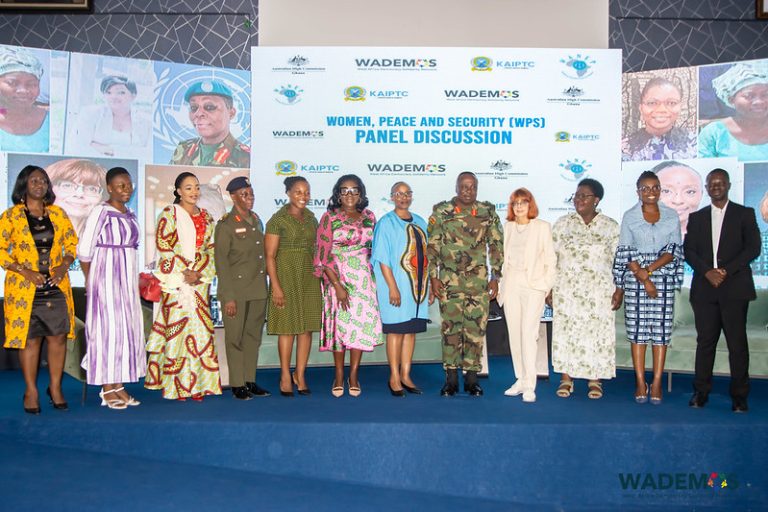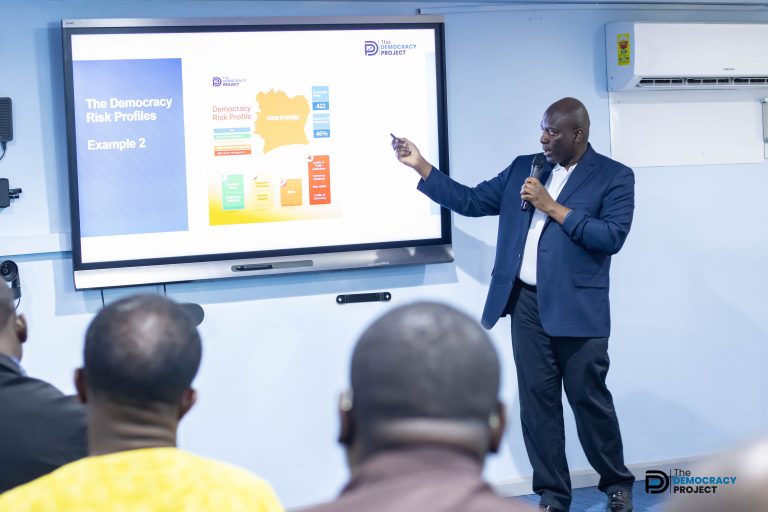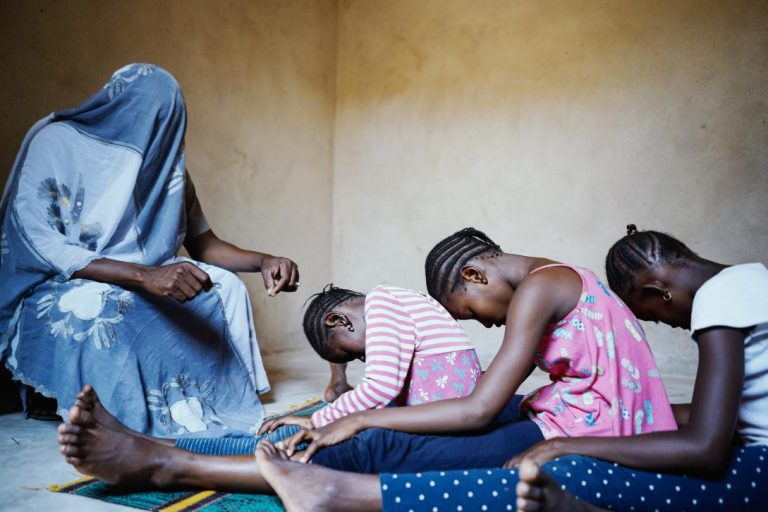The report provides an overview of the controversial constitutional reform of March 25 in Togo, as adopted by the parliament. It highlights challenges arising in the aftermath of what has been described as a constitutional power grab and outlines key issues and concerns raised by the new constitution. Recent developments include a reaction from the Conference of Bishops, and CSOs as well as the request by the President of the Republic to review the reform.
Background
Adopted by a referendum and promulgated on October 14, 1992, the Constitution of the Fourth Republic underwent several modifications in 2002, 2007, and 2019. In Togo, elections and the modification of constitutions have always been at the heart of political turmoil. The 2019 modification of the Togolese constitution opened the door for a fourth mandate of incumbent President Faure Gnassingbe, even though it was highly contested and its adoption highly controversial.
It is worth noting that, earlier in 2002, Faure’s father modified the constitution therefore eliminating the presidential term limits clause. Since then, there has been pressure from Civil Society to return to the two-term presidential limits, and in 2019, amid his third term in power, Faure successfully allowed a modification of the constitution and a return to the two-term presidential mandate. Furthermore, the process of modification was claimed to have been unilateral, without any referendum, and dominated by the ruling party at the National Assembly.
The law was passed overnight after 90 out of 91 members of parliament voted in favor of the reform. Moreover, the new constitution had been designed in order not to affect President Faure’s previous mandate, opening the door for a resetting of the presidential term clock to Zero. Following that modification of the constitution, Faure was elected president in 2020 for another five-year mandate, amidst protests from civil society. Even though the limitation of the mandate has been reintroduced in the Togolese constitution, Article 59 stipulates that the provision can be eliminated by referendum. Togo’s next legislative and regional elections will be held on April 20th, and the presidential elections are scheduled for February 2025. The last legislative and regional elections, in 2018, were boycotted by the opposition, which denounced “irregularities” in the census.
These important steps for Togolese democracy are taking place in a fragile socio-political context marked by a very closed and restricted civic space, a highly criticized and weak system of governance, the confiscation of power by the current President Faure Gnassingbe, and a weak political party opposition. Since 1967, Togo has been ruled by the EYADEMA family. Faure immediately succeeded his father Etienne Eyadema Gnassingbe following his death in 2005 and has been in power for more than 15 years. Togo re-instated in May 2019 a two-five-year term limit in its constitution after several controversial reforms. This time, the opposition hopes to challenge the ruling Union for the Republic (UNIR) party and has called for a registration surge.
On the night of March 25, a reform of the constitution was adopted by the Parliament of Togo. The proposed reforms came from a group of parliamentarians from the ruling majority, Union for the Republic (UNIR). According to them Despite denunciations and protests from the opposition political class, civil society, and other observers who called for this project to be abandoned, the text was adopted in plenary by the National Assembly. The new text was validated by 89 deputies out of 91 in the National Assembly. The vote recorded one vote against and one abstention.
- The provisions of the new constitution
The new constitution is to be promulgated by the President of the Republic, after validation by the Constitutional Court. As such, the revision enshrines notable changes in particular, the transition from the Fourth Republic to the Fifth Republic and from a presidential regime to a parliamentary regime, the establishment of a President of the Council of Ministers elected by the National Assembly, the consecration of rights and duties in a solemn declaration of fundamental rights and duties, the establishment of the Authority for transparency, the fight against corruption and the integrity of public life, the overhaul of ordinary justice and the abolition of the Supreme Court, the establishment of the Citizen Protector in place of the Mediator of the Republic. The adoption of this proposed revision positions the National Assembly and the Senate, which play a very important role, at the center of political life. Notable innovations concern the introduction of a President of the Council of Ministers and the reduction of the power of the President.
- The introduction of a President of the Council of Ministers
The new constitution also introduces the position of president of the council of ministers which, as a prime minister’s equivalent, has drastically reduced the president’s authority. The prime minister equivalent will now represent the Togolese nation in international engagements such as states and official visits including addressing international conventions such as the general assembly of the UN. The constitutional text says the holder will also have ‘’full authority and power to manage the affairs of the government. After parliamentary elections, the leader of the majority party or coalition will serve as the prime minister and equivalent. The President of the Council is appointed for a unique term of six (6) years. - The status of the President of the Republic, Deputies, and Senators
The President of the Republic is elected for a single mandate of six (6) years by the National Assembly and the Senate in Congress. The deputies of the National Assembly and the Senators for their part are elected by universal, direct, and secret suffrage for a renewable six (6) year mandate. The mandate of senators is also six (6) years renewable. 1/3 of the Senators are appointed by the President of the Republic. Under this constitution, the elected president will rule up to 2031, for which President Faure Gnassingbe qualifies to contest.
2. Other highlights of the new constitution
i. On the Justification: According to the parliamentarians, the new constitution will promote the exercise of effective control by citizens over their leaders and their policies, while participating directly and inclusively in political decision-making. The approach undertaken finds its basis in Article 144 paragraph 1 of the Togolese Constitution which provides that: “the initiative to revise the Constitution belongs concurrently to the President of the Republic and 1/5 of the deputies making up the National Assembly”.
ii. On the adoption process: The adoption of the constitution has been passed without a referendum. This violates Article 144 of the Togolese constitution, which stipulates that the President of the Republic may submit any constitutional bill to a referendum. The fact that such a critical amendment is being passed without a referendum violates the people’s rights to express their opinion on whether or not they accept the new law.
iii. On the current legislature’s legitimacy: The mandate of the current legislature expired in December 2024. They are therefore to be managing the state of affairs until a new legislature, but they don’t have the legitimacy to act on such critical reform. If necessary, this reform should be passed under a legitimate legislature. Moreover, the time does not seem to be appropriate for such amendments as legislative and regional campaigns are supposed to be the top priority for parliamentarians. Moreover, Article 144 of the constitution also stipulates that no review procedure may be initiated or continued during a period of temporary work or vacancy or when the integrity of the territory is undermined.
iv. On the limits of Executive Power and future implications of such a law: Under the new constitution, the president only plays a ceremonial role. All executive powers are concentrated in the hands of the President of the Council of Ministers (the equivalent of Prime Minister). Therefore, the President of the Council of Ministers escapes the two-term limitation as it does not apply to him, but to the ceremonial President. The President’s mandate is now unique, meanwhile, the President of the Council of Ministers is unlimited. This might constitute a breach of the principle of limitation of mandate as introduced in the Togolese constitution in 2019 and there is a need to clarify the limits of this office as well as for the future.
v. On the Constitutional Court’s ability to reverse the trend: The Constitutional Court of Togo is an old institution that certainly needs to be revamped. As an institution, it does not hold all the credibility that might reinforce a reversing action. Members of the current constitutional court have not been renewed for a long time, and instead of 9 members, it is now composed of six members. It is a crippled institution that has lost credibility in the perspective of Citizens.
- Reactions by CSOs and other actors
a. Reactions of the Conference of Bishops in Togo
The Bishops of Togo requested in a communique on Tuesday 26th March, an urgent audience with the President of the Republic to inform him of questions and reservations. Those reservations concern the legitimacy of such a modification, given the fact that the current legislature’s mandate has expired. Also, the moment is critical and Members of Parliament should be more preoccupied by the electoral campaign than the promulgation of the constitution. Finally, the Conference of Bishops of Togo questioned the procedure adopted, which led to the vote on the law. They called on the president to postpone the promulgation of the new Constitution and to initiate an inclusive political dialogue after the results of the next legislative and regional elections.
b. Reactions from CSOs and other actors
The situation is more complex as the passing of the reform has not been subjected to any consultation, dialogue, or referendum, as stipulated by Article 54 of the Constitution. Several opposition parties and civil society groups held press conferences on Wednesday 27th March, one of which was broken up by law enforcement saying the organizers did not have the necessary permits. On Friday 29th, nearly a hundred academics, intellectuals, artists, political figures, and civil society actors signed a “citizen appeal” asking the Togolese people to “mobilize” to “reject this betrayal” and to President Gnassingbé ” to stop the ongoing process for the good of our country.”
The former Togolese Minister of the Interior, now in exile, Me François Boko reacted by asking the “Faure Gnassingbé regime to stop this instrumentalization of institutions to perpetuate a system “. The Togolese Diaspora in Germany (DTA) did not remain on the sidelines of this call to abandon the change of the constitution. They find this change “unacceptable” which “is likely to lead Togo towards an uncertain future”.
- Conclusions
These developments can potentially worsen the political situation in Togo and seriously undermine democratic values within the sub-region, creating a breach of the general legal framework for democracy and good governance as stipulated in the ECOWAS protocol. Incidentally, the president instructed the parliament on 29th March 2024 to review the controversial reforms. In this context, citizens have been removed from the right to vote and freely choose their leader. Already, more than half of the public opinion (61%) has a negative perception of elections, picking up on disillusionment with the continued rule of the Gnassingbe dynasty. Togo’s strongest violent eruption was around its 2005 elections, with scores of deaths. A relative peace has characterized the Republic since that incident. According to Afrobarometer, even though a large majority of the population demands free, transparent, and fair elections, the demand has been decreasing.
The status of term limits in Togo remains very fragile and with high bypass risk; constituting a breach of democratic values and norms, with a stronger risk of a more authoritarian government that represses citizens’ rights and liberty for expression, threatens human rights, and constituting a high risk for political instability coupled with a very fragile system of governance. It is assumed that the new law has been passed by the current parliamentary to reduce the chances of its rejection by the upcoming parliament, whose composition might be slightly influenced by the opposition. In the Togolese parliament, the voting mode is proportional and the passing of a law requires 4/5 members to be in favor of it. Unfortunately, ECOWAS has not yet reacted to this development.
- Recommendations
As CSOs call for the mobilization of regional and international actors against this reform, it is important to extend support and solidarity to CSOs in Togo as they are very concerned about the implications of such a reform, and because there was no referendum ahead of the adoption of such a critical reform. The context in Togo is also in such a way that Civic actors have little space to express themselves without fear of violent repression. The following recommendations were made:
- There is a need for CSO mobilization and advocacy, both at the national and regional levels. At the National level, the target is the constitutional court which has the final say in such matters. Unfortunately, in Togo, Civil Society cannot initiate an appeal to the Constitutional Court as is the case in Benin. Rather public institutions can. WADEMOS can use diplomatic means to urge the President to critically review the application of such a law in a way that doesn’t undermine the state of Democracy in the country. A possibility to liaise with the President of the Republic advisor has been raised
- CSOs should champion the advocacy and support work with national institution representatives such as
o the Conference of Bishops, which remains a trustworthy interlocutor, as well as
o the Mediator of the Republic, who plays a critical role in maintaining peace in the country. Also, institutions such as
o the ‘’Communaute St. Egidios’’ which also benefits from the attention of the Togolese leadership can be key to the advocacy. - WADEMOS should provide the platform for collective action, dialogue, and discussion with CSOs at the local, regional/International level and key players such as NDI, and WANEP. They are very key and need to be involved in the process. Such a platform helps amplify voices, supports and extends the advocacy, and raises awareness on the critical nature of such a move and the challenges of democracy in Togo
- ECOWAS’ attention should be drawn at the regional level to urge them to act against this potential constitutional coup and particularly to keep an eye on the risks of unlimited mandates for the executive.



